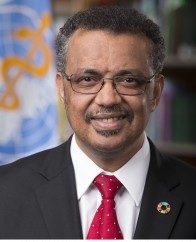

By Dr Tedros Adhanom Ghebreyesus*,
Director-General, World Health Organization
Geneva: The World Health Organization (WHO) is preparing for the very high probability that 2023 and 2024 will be marked by an El NiñoEl Niño event, which could increase transmission of dengue and other so-called arboviruses such as Zika and chikungunya.
The effects of climate change are fuelling mosquito breeding and the spread of these diseases. To respond to this threat, WHO last year established the Global Arbovirus Initiative, which aims to strengthen the world’s ability to prevent, detect and respond to outbreaks of these diseases. Many of the same capacities that countries established for COVID-19 can also be leveraged for dengue and other diseases.
Earlier this month, Peru declared a state of emergency over its worst recorded outbreak of dengue. Since the beginning of this year, almost 150 thousand suspected cases have been reported, more than half of which have been laboratory confirmed.
Although fewer than one per cent of cases are of the life-threatening severe kind of dengue, these cases are putting a heavy burden on Peru’s health system.
The number of cases reported so far this year is more than double those reported in the same period last year and more than four times higher than the average of the last 5 years. In response, WHO is supporting Peru to strengthen vector control, surveillance and clinical management, through the training of more than 6000 health workers.
The incidence of dengue has grown dramatically around the world in recent decades, especially in the Americas, which reported 2.8 million cases and 1280 deaths last year.
And many of the actions that can prevent dengue are the same actions that can help to prevent so many other diseases, including climate action.
*Edited version of the statement released by WHO today




